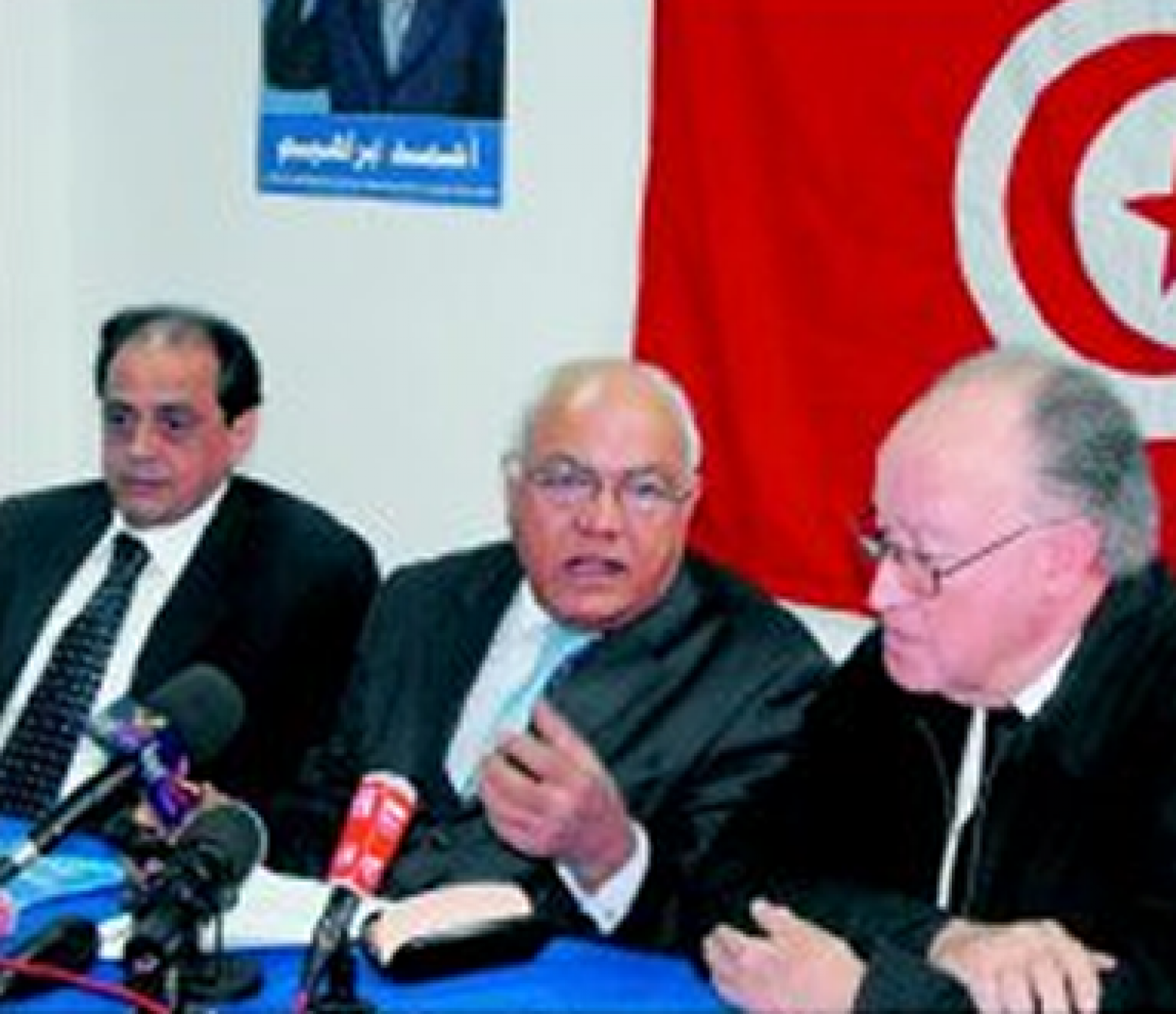
SHARE
For the first time since Tunisia started holding multi-party elections a decade ago, political parties united to observe voting around the country. After months of preparation, with assistance from NDI, senior members of the Ettajdid (Renewal) Movement and the Democratic Forum for Labor and Liberties (FDTL) deployed 400 party agents to polling stations on election day.
According to official figures, incumbent President Zine El Abidine Ben Ali was re-elected to a fifth five-year term with 89.3 percent of the vote in elections marked by widespread restrictions on opposition parties, civil society organizations and the press. In a country renowned for its social and economic advancement, Ben Ali leads a powerful state apparatus that guarantees political control by the presidency and ruling party, the Constitutional Democratic Rally (RCD).
The political parties organized the pollwatching effort because no significant international observation mission would be present for the election and no legal framework exists for independent domestic monitors from civil society organizations. To address this situation, three political parties — Ettajdid, the FDTL and the Progressive Democratic Party (PDP) — partnered with NDI as they drafted strategies for deploying party agents to observe the voting, a mandate guaranteed by the constitution.
In June, the members of the three parties' political bureaus signed an agreement to collaborate on election observation, the first time that Tunisian political parties have committed to cooperate on pollwatching. Following this initial session, party members secured the support of party leaders and launched programs to train fellow party members around the country in pollwatching techniques. Party representatives developed detailed recruitment, training and deployment plans for pollwatchers in early October along with a timeline, a scope of work, organizational structure and a set of core materials to steer their operations on election day.
However, when the country's Constitutional Council rejected the majority of the three parties' proposed candidate lists for the legislative elections, the PDP decided to boycott the race and opt out of the observation plan.
Ettajdid and FDTL representatives remained committed to the initiative and ultimately deployed 400 party members to observe voting around the country.
The parties faced significant obstacles, including intimidation of party agents, severe limits on freedom of press and assembly, and infringements on internal communications. Nevertheless, by being present at polling stations around the country, the parties were able to meet their stated goals of expanding visibility while shedding light on potential electoral misconduct and fraud.
Following election day, the two parties analyzed their results to identify common problems surrounding the administration of the election. The leaders of the observation team held a joint press conference on Oct. 20 to communicate their findings, which included documented irregularities in the electoral process. They will publish these findings in a formal report to be issued to national and global media outlets. To build on the skills and strategies developed during their first experience with pollwatching, political parties will now focus on observation efforts for municipal elections scheduled for May 2010.
Pictured above: Leaders of three opposition parties in Tunisia hold a joint press conference to discuss their election day observation findings.
Published on November 3, 2009


